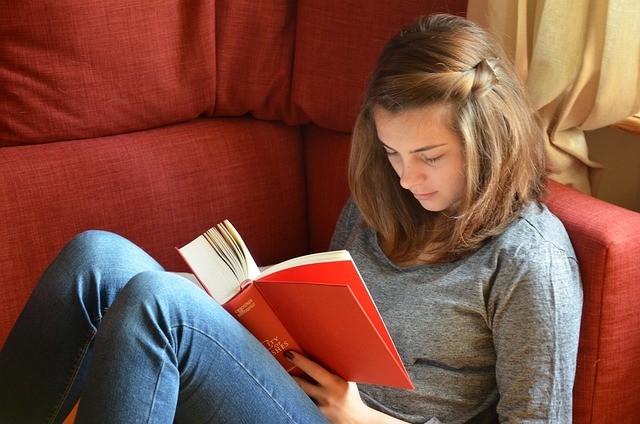In recent years some parents have taken their children out of school so that they can be educated at home. More recently this increased due to the pandemic, as some children were asked to stay at home. Some of them had lessons online and some parents stepped up to the mark, not wanting their children to miss out on education, and took over their child’s curriculum, doing it all within the home.
What is homeschooling?
Homeschooling is exactly what it says: the home is the school. A homeschooled child no longer attends a school; all learning is done at home. Some parents take charge of the teaching, while some hire a tutor or governess. Homeschooled children are no longer connected to a school, the curriculum and all lessons are planned by the parents or the people they employ. When the school day is over, the switchover from school time to enjoying free time is instantaneous.
Why do people homeschool their children?
There are many different reasons why people homeschool their children: It could be that they believe they can do a better job, or because their child really doesn’t like being in a school or cannot cope with the environment, or possibly bullying. Some parents are very busy and frequently on the move between countries. Homeschooling is a good choice for the children of these parents because education can be continued seamlessly despite moving from one country to another. There is no need to find and enrol in another school and thus the child does not have to settle in with all-new classmates where there could be a different language or culture.
Can I do homeschooling? Should I be qualified as a teacher?
Yes, you really can do it, and no, you don’t need to be qualified as a teacher. One positive effect of teaching your children is that you also learn new things. More good news is that studies show how children of parents who do not have higher education can do just as well as those whose parents are highly educated. Even if you are not qualified to teach your children, the people you hire likely will be, and they will have experience in this area. For parents who are very busy or who have to move between different cities or countries, hiring a tutor or governess to cover their children’s education is a great option. If the family has to move to a different city for a few weeks, they can take their tutor or governess with them. The child’s education is then uninterrupted.
Homeschooled children receive extra attention
An important point to note here is that because homeschooled children are not in a class of up to thirty others; the attention from the tutor or governess is all theirs. The more capable children at school often get little attention. This is because attention in a classroom goes to those who are struggling with the lesson or are misbehaving. The phrase ‘the squeaky wheel gets the grease’ applies here.
This extra attention from a governess or tutor, combined with the fact that the material will likely be specifically chosen for homeschooled children means the quality of education is higher. What’s more is that studies have shown that children educated at home take more pride in their work, as the situation assists their becoming more self-motivated. And a great positive for these children is that as almost all work is done at home, so there’s no need for homework.
What about offsite visits?
Most children who attend school have their various lessons in different classrooms in a school. There will be some lessons that require a visit offsite somewhere, but these are few in number. Children educated at home are not always educated at home – this is just the name given to this style of education. There is no need to limit the number of external educational visits.
Depending on each family’s circumstances, it is possible for a homeschooled child to go out with their parent or teacher as often as is necessary to experience real-world, hands-on learning rather than seeing things in a book or on a screen. There is an advantage here in that certain skills can be learned in the real world too, rather than theoretically and without physical practice. This does not apply in all cases though; a school will house many useful, specialist, and very expensive types of equipment and resources that most people do not have access to.
What resources do I need for homeschooling?
If your home is to be the school, you only need one classroom. Which room you use is up to you, maybe you can use different rooms on different days, or let the child decide? If you are going to be the teacher, you need to allocate a certain amount of time each day. But you don’t have to follow the hours of schools. You are free to structure the day to suit you and your pupil(s); it’s just another benefit.
The resources required for a year’s education can be considerable. The cost of books and other materials can mount up – although one expenditure you won’t have is a school uniform. In a school, the textbooks are passed on to the next year’s pupils and they may be used for several years. Books that you buy to use at home might only be required for one academic year. They can be sold or passed on to other homeschooled children after this year though.
Knowing what books to buy
You need to know your curriculum before you can buy the materials. There are companies that can make this easy by providing each year’s curriculum, lesson plans, and necessary materials as a bundled package. Otherwise, if you employ a tutor or governess directly, part of the teaching responsibility would be the planning of the curriculum.
And it can be a curriculum specifically tailored to the strengths of the child. Likewise, if there are areas where the child is struggling, homeschooling allows the teacher the flexibility to give extra attention to these so that they do not remain weak points. The amount of progress in all areas will quickly become apparent to the parent, tutor, or governess; there is no need to wait for parents’ evening or an end-of-term report. This means that any problem areas can be addressed immediately rather than months later.
Homeschooled children and socialising
There are some myths surrounding the topic of homeschooling children. One is that they do not get to socialise as much as children who attend school. While it’s true that at school, children mingle with possibly hundreds of others, they don’t necessarily become friends with all of them or have any kind of relationship with them. Homeschooled children have more exposure to grownups through field trips and visitors to the house. This increased interaction with adults can mean that they mature slightly more quickly and benefit from this when they become adults.
It is possible that homeschooled children have a smaller circle of friends than those in schools, but for families who are frequently moving between cities and countries, this might be an irrelevant point. Homeschooled children can have very strong relationships with the people around them as they experience and deal with changes and learning on a daily basis. As the children spend more time in the home, whether they are educated by their parents or not, they get to spend more time with them, which allows for building stronger relationships with the most important people in their lives.
Interaction with other children is not always positive though. Some homeschooled children thrive when they are taken out of a situation where there is peer pressure or even bullying. And there are always plenty of children around who have no interest in learning and want to misbehave. They can distract others from their learning and give other children bad habits.
Will my child like being homeschooled?
You know your child best, so no one else can really answer that. It’s something you can only really answer by trying it. All children are different and will like certain things about a real school and some things about the home school. It will be a learning experience for you both at first, as you discover what works and what doesn’t. You can make constant changes until you find that sweet spot that makes the homeschool experience good for all involved.
Children might miss all the interaction with other pupils, especially when it comes to sports and games, but as we’ve mentioned, there will be more adult interaction, which brings its own benefits. It’s not as though you are going to prevent your child from mixing with other children; there are plenty of other places where children can interact. There are likely to be local sports clubs and groups your child can attend. With the rise of homeschooling, there may even be groups that are specifically for homeschooled children. There is no need for them to miss out.
A possible solution: hire a governess
When hiring someone to do the teaching, you need to find a reputable agency that can supply someone with the right qualifications. Being your own child’s teacher can be a little stressful as you mix or try to separate the roles of parent and teacher. But doesn’t it seem perfectly natural for parents to teach their children about the world? Even if you hire a teacher, education is still happening in the family home and not in the hands of other people in what might be a one-size-fits-all programme.
What can a governess do? Being experienced at teaching, she can handle the entire educational side of things. One of the pros that we mentioned was spending more time with your child. If you hire a governess, you won’t be the one doing the teaching but at least your child will be at home. If you are home at the same time, you will still spend more time with them. Also, with no time lost driving the children to and from school, you can share more quality time with them; everyone wins.
Doesn’t it fill you with a warm feeling to know that your child could be receiving high-quality, bespoke education in a setting where they feel totally comfortable, all delivered by a trusted, experienced expert? And should you need to jet off to another location, you can pack up the ‘school’ and take it with you.




